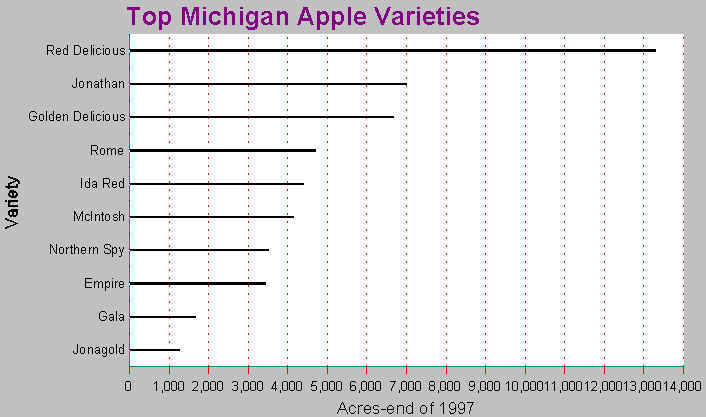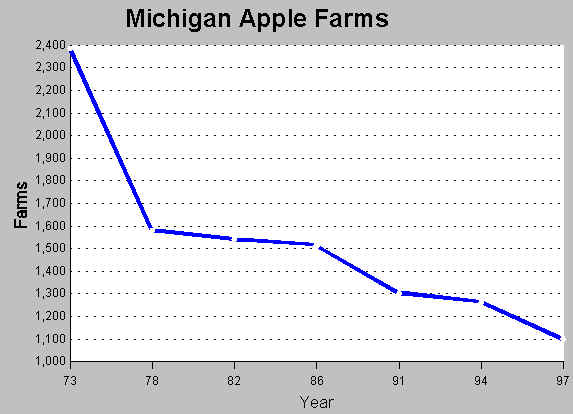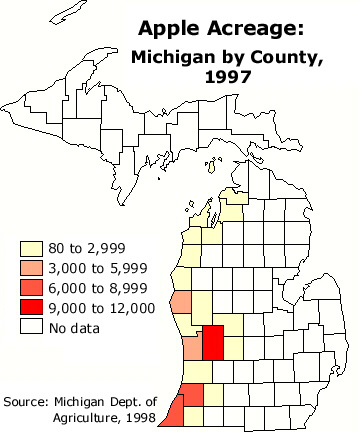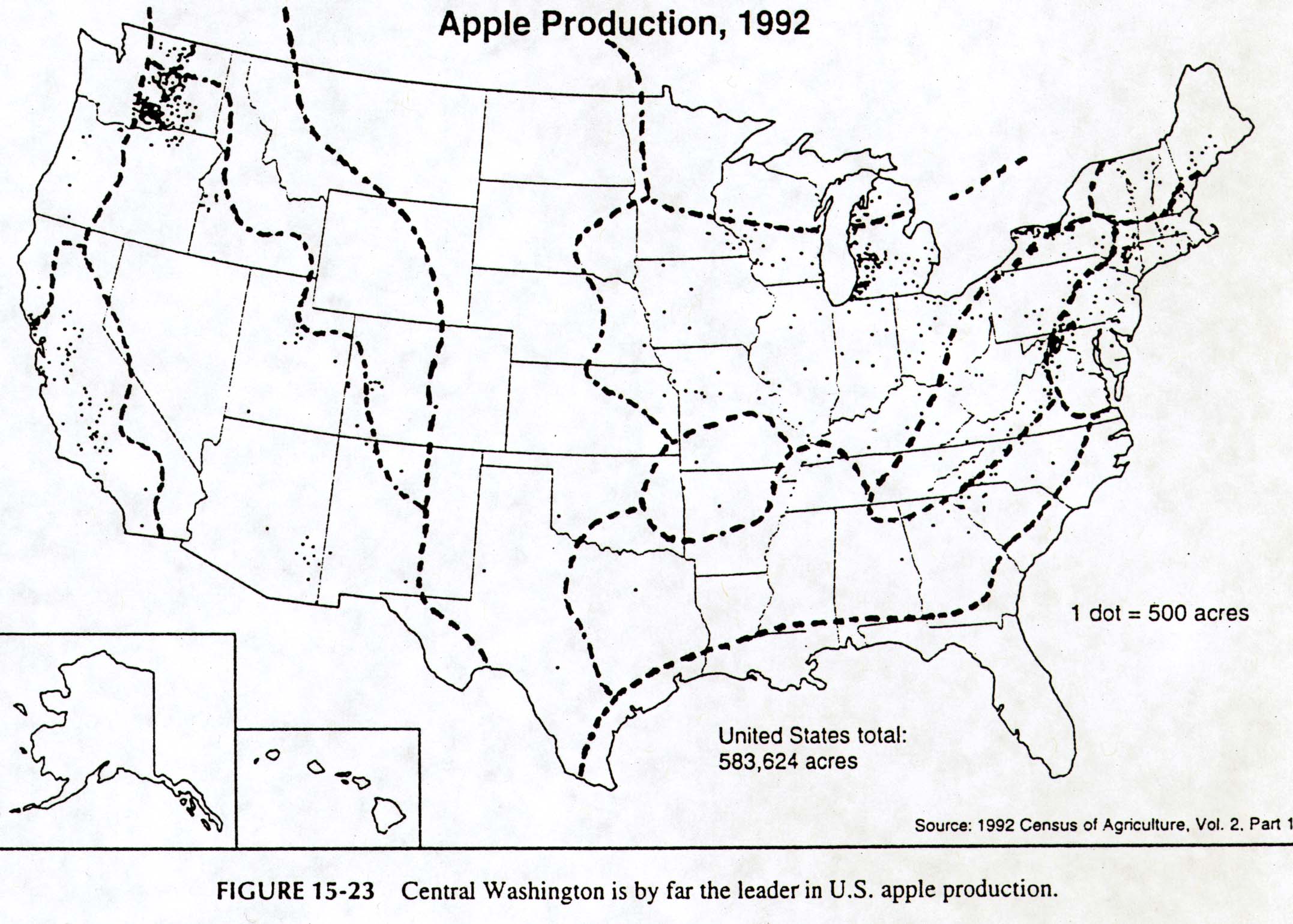The value of Michigan's apple crop was $116.2 million in 1997, ranking the state number three in apple production in the nation. Apple growers produced more than 15 varieties including Red and Golden Delicious, Jonathon, Northern Spy,
McIntosh, Empire, Rome and Ida Red.
Some growers now specialize in producing "antique" apples, the varieties many of our grandparents and great-grandparents enjoyed when they were children.
Michigan's glacial history offers unique and ideal growing conditions for apples. The northern winter provides apple trees with a dormant period necessary for optimum yield.
Apples are a high quality fruit chosen by many Americans as a snack food. The apple has essential vitamins and minerals including pectin and dietary fiber. An average-sized apple has 80 to 90 calories, is high in complex carbohydrates, low in
sodium and has no cholesterol. A recent Michigan State University study revealed that apple eaters have fewer respiratory infections and tension-related complaints. The United States Department of Agriculture found that the mineral boron in apples can curb calcium deficiencies in people over fifty and keep brain functions alert in toddlers.
Michigan apples are processed in several ways. An important Michigan apple product is pure and natural apple cider. (When pasteurized, apple cider is known as apple juice.) Michigan produces over 50% of the nation's apple slices and is
the largest supplier of apple slices used in commercially prepared apple pies. Also, Michigan apples are a main source for applesauce.

Source: State of Michigan - Department of Agriculture

Source: State of Michigan - Department of Agriculture

In Michigan, Kent County is the apple leader.
Michigan is routinely third in US apple production, as this map (below) shows:

This material has been compiled for educational use only, and may not be reproduced without permission. One copy may be printed for personal use. Please contact Randall Schaetzl (soils@msu.edu) for more information or permissions.